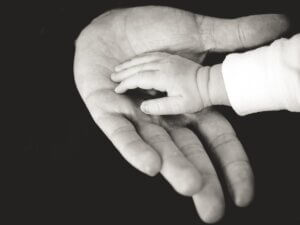Do you ever struggle wrestling with the guilt of your sins after repenting of them? Here is some help with how to feel forgiven by God.
Where is another God like you, who pardons the guilt of the remnant, overlooking the sins of his special people? You will not stay angry with your people forever, because you delight in showing unfailing love. Once again you will have compassion on us. You will trample our sins under your feet and throw them into the depths of the ocean! (Micah 7:18-19)
That moment when you make the decision to turn your life over to Christ is amazing for most people. When Christ cleanses your repentant heart and the Holy Spirit indwells you, marking you for His eternal inheritance – well, for me, I don’t remember anything else like it. Although every person is different and will take the moment in differently, there is a sense that something has changed. As it should.
In those first days after making the decision to follow Christ, there are several things a person can do to get started off on the right foot, so to speak. But as we continue to live in these fleshly bodies, hammered by temptation, there is an opportunity for us to sin. Yes, sin is a defeated enemy for a follower of Christ, but since we still dwell in these fleshly bodies, there is an avenue to sin if we allow ourselves to walk down it.
Needing to be Forgiven by God
With sin comes consequences, which are gravely serious. Fortunately, God continues to allow for repentance in the life of a follower of Christ, so that we can be made in right fellowship with again when we confess our sin (1 John 1:9).
For someone with a strong relationship with Christ, having to confront our sin can be detestable. But an incident of sin can be dealt with, and we can move forward with our walk with Christ.
It is also possible to fall into a habitual sin if we’re not walking in the path of holiness, even to the point that we risk falling into apostasy. The Bible tells us that those who come to know Jesus and then they become entangled by sin again are in a worse state than before (2 Peter 2:20).
If we have fallen into a deep state of sin or find that particular sins continue to trip us up over time – especially if those are interspersed with times of a strong, biblically-grounded walk with Christ – we may delay true repentance because of the guilt and shame of our sin.
But let’s say you have repented, and you don’t feel different. You are left asking “why don’t I feel forgiven by God,” or saying “I feel too sinful to be forgiven”.
The problem is, if your shame and guilt keep you from opening yourself up to a right relationship with God, you are eventually going to fall back into more sin. Unless we understand we are a forgiven people we can’t understand how to feel forgiven by God. It is then possible to let our guilt and shame play havoc with our faith.
Therefore, it is vitally important for us to understand how to feel forgiven by God.
Why Don’t We Feel Forgiven by God?
In order to understand how to feel God’s forgiveness, it will be helpful to understand why don’t we feel forgiven by God in the first place. What are the obstacles preventing us to feel forgiven by God?
We Mistake God’s Discipline for God’s Wrath
The Bible makes it clear that if a believer is involved in sin, they can expect to be disciplined for it (Proverbs 3:11-12). You may have even heard it shortened to “He disciplines those He loves”. And while that includes the implication that it is out of God’s love that He disciplines us, we don’t always respond to it that way if we’re the one enduring the discipline. We focus only on the pain of God’s discipline, not its purpose.
Let’s face it; nobody likes to be disciplined. But the concept of disciplining for correction is so misunderstood today, that we now only equate it as punishment or worse. But that is the object of true loving discipline, that is, correction.
While God’s discipline will come before our seeking forgiveness, if we misunderstand God’s discipline for wrath, we will become fearful of God; not a healthy, biblical fear, but one that leads us to isolate ourselves from Him. The further away from God we are at the time we endure his discipline, the less we will understand how to feel God’s forgiveness that will come with our confession and repentance.
While going through God’s discipline can be unpleasant, even painful, it is a far cry from enduring God’s wrath. We are told that God is patient with us, and his discipline is kindness for it is to turn us from sin. God’s wrath is not aimed at those who have faith in Christ (1 Thessalonians 5:9-10). God’s wrath will ultimately be poured out at the end of time when he reveals who is and isn’t in the Lamb’s Book of Life (Romans 2:1-11). For those upon whom God’s wrath is coming, that will be their most terrible day.
We Don’t Feel Forgiven by God Due to Our Shame
Once we are confronted with our sin, shame is our natural response. Shame makes us want to deny what we’ve done, hide from it, excuse it, or change the terms so that it’s not really a sin.
We want to do anything to avoid confronting our sin, admitting that we are responsible for succumbing to temptation, and admitting our sins to God and ask Him to forgive us. That’s ultimately what makes shame so insidious – rather than draw us to repentance, it makes us run from it. Shame is factual guilt mixed with self-loathing, and it short-circuits all our relationships, including with God.
Shame is the very first reaction that Adam and Eve had after first eating from the tree of the knowledge of good and evil (Genesis 3:6-7). It makes sense that we would deal with the burden of shame if it was their first natural reaction.
If we have confessed and repented, and been forgiven by God, shame should not have any more hold on us. But it will if we dwell on our past sins. Before repentance, shame is our own worst enemy; after repentance it is the Devil’s best friend. He isn’t called the accuser for just nothing.
The writer of Hebrews encourages us as believers to put aside the weight of our past sins so that we may be more able to run with the endurance that is required to walk the Christian path (Hebrews 12:1-2).
We Are Afraid God Won’t Forgive Us
As followers of Christ, we have an even better understanding than the world as to how God feels about sin. If we have committed a sin that we find particularly reprehensible, one that we’ve committed previously, or have allowed habitual sin to take over our lives, our shame will be so severe that we will convince ourselves that God won’t forgive us.
It doesn’t make sense to us that God would extend forgiveness indefinitely. We think about how unwilling we would be to forgive another person who repeatedly offended or demeaned us in some way. Even though Jesus tells us to forgive repeatedly, all of us will find a human limit to our willingness to do so. Only through the power of the Holy Spirit can we forgive at superhuman levels.
However, we should not compare our ability to forgive to God’s. God gives second chances to anyone who sincerely and utterly repents of their sin and turns towards God. If we bring ourselves to the foot of the cross, begging forgiveness for our sins and pledging to turn from them and follow Christ again in holiness, God promises to forgive us (Ezekiel 33:12-16).
We think that the last sin is also the last straw. But God promises to forgive a repentant person who sincerely seeks the Lord completely, removing our sin as far as the east is from the west (Psalm 103:8-18).
How Can We Feel Forgiven by God?
Now that we understand some of the reasons we don’t feel forgiven by God, How can we get to the place where we know how to feel forgiven by God? Here are a few things to remember that should help get us there.
Forgiveness is Not Emotion-Based
In order to feel forgiven by God, we have to get past the first idea in our heads, and that is that we are only forgiven if we feel forgiven. Being forgiven by God is not an act of the emotion, but an act of the will, for both ourselves and God.
In order to be forgiven, we must act to repent of our sins before God. This is not something that is dictated by emotions. We must mentally acknowledge our sin and own the guilt of it in our souls. In other words, we must be convicted of our sin. Then we must take the action to humble ourselves before God, acknowledge and confess our sin to Him, and ask God to forgive us so that we may have a clean heart before Him.
Then God, again by an act of His will in accordance with his perfect, divine attributes, and not based on His emotional state, forgives us. Because He has made the promise to forgive a repentant heart (Isaiah 57:15).
Since God has told us how to be forgiven, and He has made a promise to always forgive us when we do as He tells us, we can trust that God will do it. If our Creator God of the Universe says it is so, it is so. If we trust God to keep His promises, then that should help us appreciate how to feel God’s forgiveness.
Forgiveness Requires Sincere Repentance
 God promises to forgive our sins – if we come to Him with a repentant heart.
God promises to forgive our sins – if we come to Him with a repentant heart.
Repentance is more than just saying “I’m sorry”. Sincere, biblical repentance is a turning; turning from our past life of sin, putting it in the rear view mirror, and pursuing our sin no more.
One reason we may not feel forgiven by God is if our repentance is not sincere. So what does sincere repentance look like?
First, we need to appreciate the severity of sin. We can’t come to God like “whoops! Did it again!” We have to come to grips with the seriousness of sin every single time we come to repent. Sin is literally deadly business.
Second, we need to be truly sorry for having grieved the Godhead. When we sin, we sin against the Father, Son, and Holy Spirit, and it damages our relationship with each. As followers of Christ, our very lives depends on our connection with God, for as Christ says, “apart from Me you can do nothing” (John 15:5).
Third, we need to take the time to come before God and lay out our sin to Him. To own that we have committed this sin against God, and we need His forgiveness to restore our fellowship so that we can walk again in the light of His guidance and commands. We need to actually present our sin to Him for eradication from our hearts.
If we take our repentance seriously, we are more likely to feel forgiven by God.
Even with all that, we may not feel the restoration with God immediately. In some ways, especially if we are repenting of habitual or severe periods of sin in our life, where like the prodigal son we are having to do the work of coming back to God, it’s akin to starting over in some ways. We can trust we are forgiven, but perhaps not quite feel the forgiveness of God just yet. But if you carry on with the next step, you will get there.
Forgiveness Needs to be Followed with Holiness
Once God has washed our sins anew, we need to act on our restored position of relationship. We need to get back to the work of following Christ daily. This requires abiding with Christ through the abiding disciplines on a regular and frequent basis.
We can know that our fellowship is restored with God based on His promises, and we may be awash in gratitude, but there will likely need to be time as we re-establish our relationship before we can truly feel forgiven by God.
God will always leave love as a choice on our parts. Thankfully, the Bible promises us that when we draw near to God, God will draw near to us in return (James 4:8-10). But if we want to confidently feel forgiven by God, we need to take advantage of our restored innocence and walk closely in the steps of Jesus Christ in holiness.
We Can Feel Forgiven by God
As we commit to holiness and stay on that path with Christ, forsaking all sin, we will feel forgiven by God, because we will become more confident in His promises, His love, His forgiveness, and in our relationship with Him. Our past sins will become more distant and less desirable to us.
If you find yourself dealing with sin in your life, please let the words of this article sink in. If you already believe in Jesus Christ, know that He wants you with Him, washed pure as snow, for eternity. Do not let your sin, or what you believe about your sin, hold you back from running into His open arms ready to accept His forgiveness and embrace repentance and holiness. And enjoy the peace that comes from truly feeling God’s forgiveness.
More Bible verses about how to feel forgiven by God:
2 Chronicles 30:6-9; Psalm 34:4-5; Isaiah 1:18; Joel 2:12-13; 2 Corinthians 5:17; Colossians 1:13-14; 1 John 2:1-2






